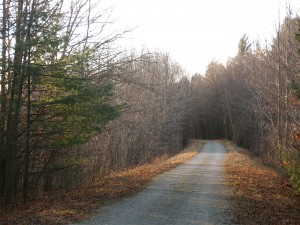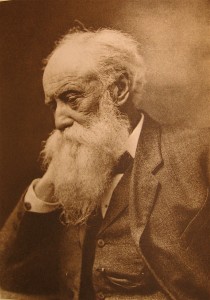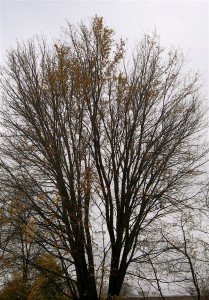Nov
26
2012

Walt
 Some people sit down whenever they ponder any of the big questions. Others like to think with their feet. I belong to the latter group. When faced with a matter of life and death, or any other major philosophical problem, I take a long walk. That seems like the best way to start dealing with it.
Some people sit down whenever they ponder any of the big questions. Others like to think with their feet. I belong to the latter group. When faced with a matter of life and death, or any other major philosophical problem, I take a long walk. That seems like the best way to start dealing with it.
Recreation is a form of escape to many. They go for a long walk, rigorous hike or good run to stop thinking altogether. Or they exercise their bodies to simply stay in shape, caring little for the mass of grey matter resting on top. But the mind recreates whenever the body does, and a refreshed mind thinks better than a stale one.
The thinkers I admire most – Emerson, Thoreau and Burroughs – were all big walkers. It is no mistake that they are considered nature writers as well. Nature teaches what indoor study cannot teach. While all three were avid readers, each recognized the importance of direct experience. Each learned as much from the elemental world as they did from books, if not more.
In the Information Age, it is easy to believe that anything we need to know can be found on the Internet. But the same mistake was made for centuries by those entering great libraries. Truth is, some things can only be learned viscerally. Some things can only be learned from wind, earth, trees, and water.
Yesterday I went for a walk on the nearby Rail Trail. I put on thermals before going out. The thin layer of ice covering pools of standing water along the trail convinced me that I’d done the right thing. The long shadows reminded me that dusk follows quickly on the heels of late afternoon this time of year. The sun was just above the trees when I finished my walk. A chilling wind numbed my cheeks. Half frozen earth crunched beneath my feet. By the time I got home, I was glad to be indoors again. But my head is full of fresh air now. I’ll think better today as a result.
Tags: nature writing, the elements, thinking, thought process, walking
Nov
16
2012

Walt
 For over a year now, I have been reading and rereading the works of John Burroughs, along with critical and biographical essays. He continues to fascinate me because he was a curious mix of contradictions: literary man and dirt farmer, naturalist and abstract thinker, recluse and socialite. His work is a sea of mediocrity seasoned with flashes of brilliance. He was deeply religious yet wholeheartedly embraced Darwinism. Few nature writers have ever been as popular as he was at the peak of his career, yet his work is largely unknown today. He chummed around with both Walt Whitman and Henry Ford. That alone makes my head spin.
For over a year now, I have been reading and rereading the works of John Burroughs, along with critical and biographical essays. He continues to fascinate me because he was a curious mix of contradictions: literary man and dirt farmer, naturalist and abstract thinker, recluse and socialite. His work is a sea of mediocrity seasoned with flashes of brilliance. He was deeply religious yet wholeheartedly embraced Darwinism. Few nature writers have ever been as popular as he was at the peak of his career, yet his work is largely unknown today. He chummed around with both Walt Whitman and Henry Ford. That alone makes my head spin.
“There is no light more mysterious than the light of common day,” Burroughs wrote in his journals. That sums up both his approach to understanding the world, and the man himself. In many ways he was a common man with many commonplace beliefs. Yet there is no mistaking the rarity of his vision. I have read a lot of naturalists and philosophers over the years. Few have been as scientific in their thinking as he was without discarding the concept of God altogether. Even fewer have speculated about the nature of the universe at large while growing grapes. He was a rare bird, indeed.
It is no mistake that I have been drawn to Burroughs and his work. His spiritual father was Ralph Waldo Emerson. In my latter years, I too have gravitated to Emerson’s way of seeing the world. All three of us have one thing in common: a deep and abiding pantheism. And while that word does none of us justice, it comes as close as any word can to explaining how they felt and I still feel while beholding the divine in nature
The danger in reading the likes of Emerson and Burroughs is that one loses touch with the spirit of these modern times. It’s hard to imagine either man yapping on a cell phone, watching television, or surfing the net. Burroughs drove a car in his old age but had a hard time keeping it out of ditches. That said, I think either one would make a good trail companion if they were alive today. Some things never change. Our relationship to the wild is one of them.
Tags: John Burroughs, natural philosophy, nature, nature writing, pantheism, religion, science
Nov
05
2012

Walt
 The old silver maple in my back yard is one of the last trees to shed its leaves. When I look up and see its naked branches against a grey sky, I know that the first snow isn’t far away. That’s good news to both deer hunters and skiers. To some extent that’s good news even to guys like me, who do most of their thinking and writing during the colder half of the year. But it’s hard getting past the inherent sadness of it.
The old silver maple in my back yard is one of the last trees to shed its leaves. When I look up and see its naked branches against a grey sky, I know that the first snow isn’t far away. That’s good news to both deer hunters and skiers. To some extent that’s good news even to guys like me, who do most of their thinking and writing during the colder half of the year. But it’s hard getting past the inherent sadness of it.
We turned our clocks back over the weekend, making the most of diminishing daylight. I saw a few snow flurries yesterday while tossing the ball for my dog. I stayed outside for about a half hour before retreating indoors to hot chocolate, television football and a good book. A few days ago, despite cold rain, I raked up all the leaves the old maple had dropped. All bagged up, I will haul them away soon. End season rituals.
It’s best not to fight it. I take pleasure in the warmth of well-lit rooms and will soon pull out my thermals so that I don’t feel trapped indoors. I have several literary projects underway – enough to keep me busy until April. I shrug my shoulders at the prospect of five o’clock sundowns. All the same, I’ll miss the green.
Tags: backyard nature, moods, seasonal change
 Some people sit down whenever they ponder any of the big questions. Others like to think with their feet. I belong to the latter group. When faced with a matter of life and death, or any other major philosophical problem, I take a long walk. That seems like the best way to start dealing with it.
Some people sit down whenever they ponder any of the big questions. Others like to think with their feet. I belong to the latter group. When faced with a matter of life and death, or any other major philosophical problem, I take a long walk. That seems like the best way to start dealing with it.


